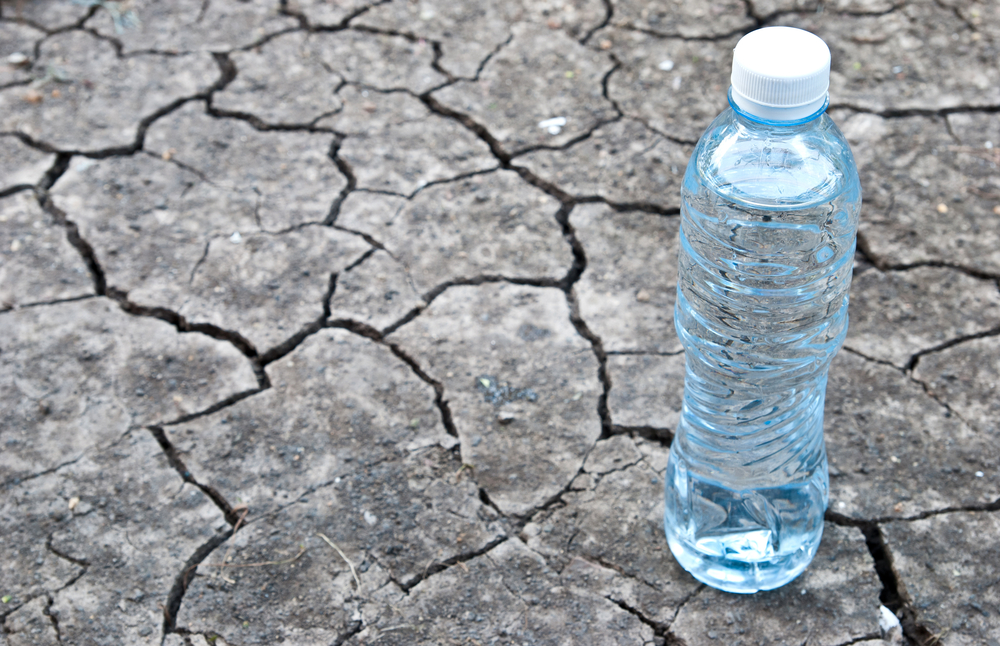
Nestlé, the food and drink company that sparked outrage among environmentalists earlier this year for continuing its California bottled water operations in the midst of the state’s historic drought, is coming under fire again.
This week, the Center for Biological Diversity and two other organizations filed a lawsuit against the U.S. Forest Service, claiming it allowed the company to use an expired permit to draw water from the San Bernardino National Forest. The permit, the lawsuit alleges, expired 27 years ago, but Nestlé drew about 28 million gallons of water from a creek in the national forest in 2014 alone. That’s not acceptable in the midst of a drought, the groups say.
“We Californians have dramatically reduced our water use over the past year in the face of an historic drought, but Nestlé has refused to step up and do its part,” said Michael O’Heaney, Executive Director of the Story of Stuff Project, one of the plaintiffs in the case. “Until the impact of Nestlé’s operation is properly reviewed, the Forest Service must turn off the spigot.”
The lawsuit also claims that Nestlé’s operations, which include a four-mile pipeline that takes water from Strawberry Creek, are damaging the environment.
“There would be much more and improved riparian and woodland habitat if natural flows were returned to Strawberry Creek and its tributary,” the lawsuit states. “This habitat is dependent upon consistent availability of surface water or near-surface water. During drought periods, even the areas that have supported this habitat in wetter years are reduced. Species such as canyon live oak, bigcone Douglas fir, and California bay are currently being adversely affected by the removal of so much water.”
Ileene Anderson, a scientist with the Center for Biological Diversity, told ThinkProgress that since the permit hasn’t been renewed since 1988, the U.S. Forest Service hasn’t done any further environmental review on how Nestlé’s operations affect Strawberry Creek.
“Our goal here is to basically get the Forest Service to do that evaluation,” she said. The review would help ensure that too much water isn’t getting taken out of the creek and that the creatures that live in the creek aren’t being seriously affected by the operations. “Under drought conditions, we don’t want to see these streams dry up,” she said.
The Story of Stuff explains the situation further in a video:
California has been in the midst of an epic drought for the past four years. A study last month found that the snow in the state’s Sierra Nevada mountains is the lowest it has been in 500 years, and a study last year found that the state’s drought is the worst in the last 1,200 years. The severe dryness has forced the state to ration water and regulate groundwater, and it could end up costing the state’s economy $2.7 billion in agricultural losses.
Nestlé came under investigation from the federal government in April for its expired permits — a review that could take 18 months or more, the Los Angeles Times reports. The news of the expired permit angered environmentalists — about 515,000 people signed a petition earlier this year calling on Nestlé to stop its bottled water operations in California, and protesters gathered at Nestlé plants in May.
Still, Nestlé maintains that its permit is valid. It also says that it uses less than 1 percent of California’s total water supply for its bottling operations.
“Our permit, as told to us by the forest service, remains valid and in effect,” Nestlé Waters North America Spokeswoman Jane Lazgin told the Hill. “And we continue to pay the required fee for the pipeline use and transportation of water at that site.”
And Nestlé hasn’t given any signs that it plans to move out of California. Quite the contrary — Nestlé International Waters CEO Tim Brown said in May that, if he had his way, he’d ramp up California operations.
“We feel good about what we’re doing,” Brown said. “In fact, if I could increase it, I would.”
The lawsuit aims to ensure that doesn’t happen. It calls on the court to shut down Nestle’s water pipeline in the San Bernardino National Forest, and to ensure that the U.S. Forest Service conducts a new permitting process with environmental reviews.
“Water in California is always an issue,” Anderson said. For [the Forest Service] to be negligent for that long is untenable and really unimaginable. I don’t know why they haven’t raised this to a very high priority.”